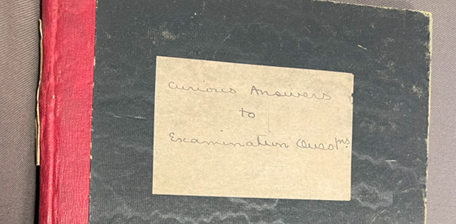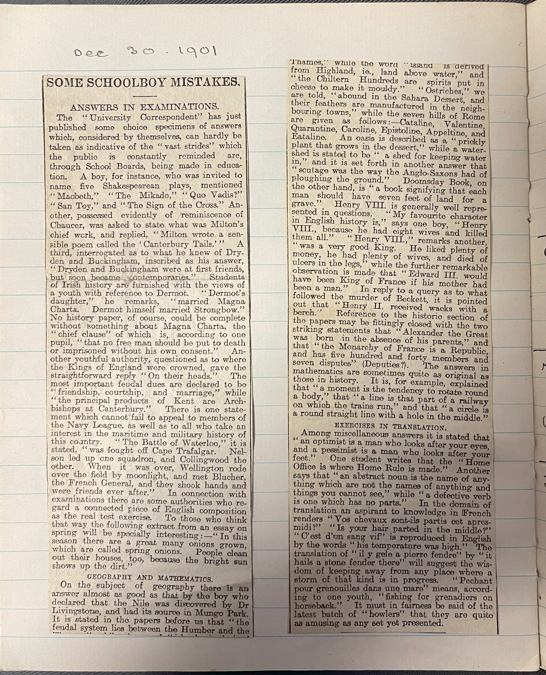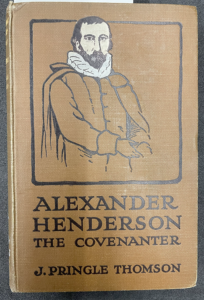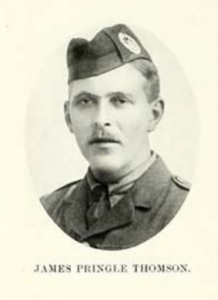There is nothing in the paper I can do…

As a general rule, we do not retain examination scripts or answers in the University archive. There are a few items however that have been kept by archivists due to their uniqueness. During this examination period, we thought we might share one of two of these examples. A volume entitled “Curious answers to examination questions”, includes anonymous entries on a variety of topics, and a few newspaper clippings. It is not known who kept the volume but the entries date from 1901 to 1907. One clipping, from an article entitled “Some schoolboy mistakes”, reports on interesting responses to exam questions, such as “The Battle of Waterloo was fought off Cape Trafalgar” or that the “Nile was discovered by Dr Livingston, and had its source in Mungo Park.”

Exam scripts from St Andrews students are few and far between in the archive. However, one script has been kept from student James Pringle Thomson (1889-1916). Thomson, from Dundee, was educated at Dundee High School and Morrison’s Academy, Crieff before enrolling at St Andrews in 1907, graduating with Honours in English in October 1910.
Perhaps unfortunately for James, it was mandatory for those studying for the Master of Arts degree in the early 1900s to take a full course in Mathematics, or Natural Philosophy (Physics), as part of their degree. The covering note James submitted with his Mathematics paper reads “There is nothing in the paper I can do”. Rather than hand in an empty paper, James filled his script with his delightful artistic interpretations of various shapes, perhaps an appeal to staff members’ sense of humour!

While Mathematics might not have been his forte, History and English were. Following graduation, Thomson embarked on a career as a journalist, working for the Dundee Advertiser, the Weekly Scotsman and as sub-editor for the Glasgow Herald. He also published source books on Scottish History in 1914: The Scottish covenanters (1637-1688) and The Jacobite rebellions (1689-1746). His earlier publication, Alexander Henderson the Covenanter, published in 1912 was based on the essay which won him the University of St Andrews Chancellor’s Prize in 1911.
The prize was an essay competition set by the Chancellor open to all graduates of St Andrews and other Scottish Universities for the award of £21. The topic for 1911 was “Alexander Henderson the Covenanter”. Thomson’s essay was considered good enough for publication and the Chancellor, Lord Balfour of Burleigh, provided a foreword for the published text. Thomson’s own foreword thanks Modern History lecturer John Duncan Mackie (1887-1978) for his assistance. Thomson had taken Mackie’s history class in 1909/1910.

Sadly, like so many of his generation, Thomson’s life was cut short in World War I. Serving in the Queen’s Own Cameron Highlanders, he died of wounds received in battle on the 15th of August 1916. His picture is included in the University of St Andrews Roll of Honour.
For more about the history of examinations at St Andrews take a look at previous blogs:
The exam season is upon us
The history of exams at St Andrews- Part II
Examinations for Ladies Literate in Arts
I know how he felt. In 1969, my final paper of nine in Honours English was Classical Background to English. In my final question I couldn’t be sure which Greek tragedian I was writing about,so I added a note asking the examiner to choose either Euripides or Aeschylus…I passed! Probably felt sorry for me as it was question 36 in two weeks of exams!